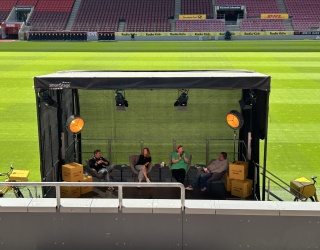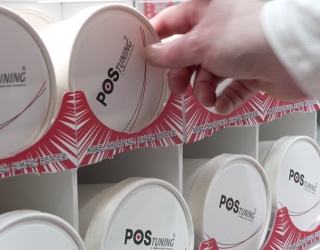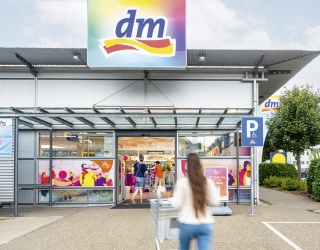
Many channels lead to sales and Rome was not built in a day. The retail market knows this, too. Thanks to increasing online consumption and the rise of mobile devices, sales also need to increasingly move on to new pastures.
Consumers are all individuals. Consumers are particular. That is also, why sales approaches are as varied as the range of products: newsletters, banner ads, online shops, Facebook pages, telephone hotlines, catalogs or – very traditional – a local store. The fact that Smartphones have long since advanced to becoming every day shopping companions is one of the many trends that need to be considered in the development of a well-thought-out multichannel marketing strategy.
The customer is king and the agony of channel choice
It is important in multichannel sales to give the customer a sense of being well taken care of and being holistically advised. For retailers this also means to follow trends and to make sure that customers can also combine different channels depending on their taste. mcommerce and combining online and offline consumption are just two trends in the agony of channel choice.
Edel Optics – A retail store/online shop hybrid
Another example of a successful connection between online and offline consumption is Edel Optics optometry in Hamburg. In November of 2012, the business mix made up of retail store and online shop was nominated to be the “Store of the Month” by the professional trade magazine TM and the Stores+Shops publication. The store has several panels with iPads, giving the customer the chance to browse the different available eyeglasses online. Once he/she has identified the fitting models using the special search functions, he/she can pick them up from an associate at the counter, try them on and consult with the specialists.
Making your online presence Smartphone capable
Retail and consumers have long accepted Mobile Commerce, since the number of Smartphones in Germany has already broken the 27 million mark. The use of tablet PCs is also widespread. According to a study by the E-Commerce Center Handel (ECC) in Cologne, the use of Smartphones and tablets will vastly affect retail over the next three years. Today already, every sixth Smartphone user looks for information on local retail stores several times per week. Another 21.5 percent use their cell phone for this multiple times per month.“The numbers clearly show that information search with mobile devices has already become an integral part of the buying process for many consumers“, explains Aline Eckstein, Divisional Director of the ECC Handel at the IFH Cologne. She says that in the future the presentation of online sales offers have to be optimized for Smartphones, since an incorrect web page scares mCommerce customers away.
mCommerce and ROPO shoppers (Research Online & Purchase Offline)
payleven and pepperbill for instance are favorably accepted and have arrived in the NOW of the right mCommerce. As of late, the tech startup pepperbill has an easy to handle, mobile point of sale system for iPod touch and iPad for the hospitality industry in its product line. This way, 90 percent of acquisition costs are being saved compared to conventional checkout systems. The payleven system on the other hand uses the store’s own Smartphone as a mobile checkout. Thanks to the connection of the payleven app using a secure interface and the free of charge payleven solution for cash and credit cards, for the first time ever Germany has a complete mobile checkout system that is also suited for paying by credit card. The times when associates had to painstakingly sort the loose change a customer proudly dug up from his/her pockets into the cash register, are over. The mobile payment option gives the consumer a safe and cashless payment method as well as provides a convenient and space-saving POS system for the hospitality industry, which certainly amazes the trend-conscious customer.
Another service with a promising future is online reservation with subsequent local pickup. After all, the so-called ROPO shopper (Research Online & Purchase Offline) researches and reserves the desired product on the Internet and afterwards handles the remaining purchase transaction offline at the local retail store. According to Alastair Bruce, Director Retail of Google Germany, this offer represents a sustainable multichannel strategy for the brick and mortar business. For more on Google‘s multichannel strategies, read our interview.
Back to the roots – The revival of direct sales
Despite increasing online activities, today’s and tomorrow’s customer would not want to miss face-to-face contact. Surprising, but plausible in this connection is also the revival that direct sales is going to experience in the future according to a current study by the Federal Direct Selling Association of Germany (BDD) and the marketing research and consulting firm TNS Infratest. 17 to 21 percent of consumers anticipate this growing importance of direct sales through contact with the seller in their own home or at sales events at a friend’s place. “These numbers do not surprise me“, says Jens Krüger, Managing Director for TNS Infratest. “Despite the further decrease of retail sales in the future particularly in rural areas, the yearning for adventure, service and exchange continues to remain. Direct sales fulfill this need.“ Whereas the Internet is perceived as timesaving, convenient and functional, direct sales is accredited with attributes such as communicative, face-to-face and real. In the future, a well-balanced multichannel marketing strategy could definitely be taken into consideration, because the terms customer and contact still belong together – both on the retail as well as on the consumer side.
Elisabeth Henning, first published on EuroCIS.com






